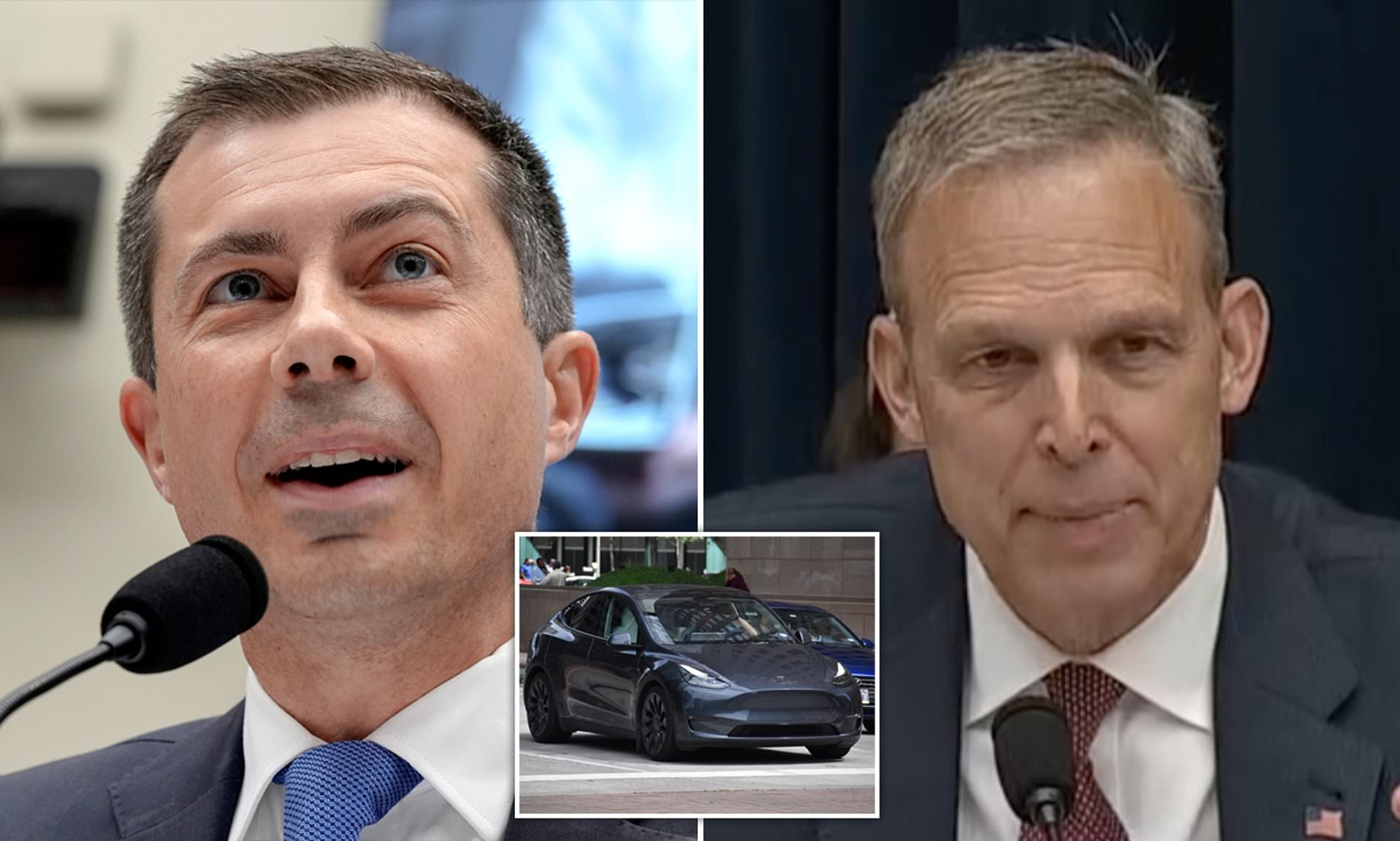
BUTTIGIEG CLASHES WITH REPUBLICAN WHO CALLED EV MANDATE 'DICTATORIAL'
Secretary of Transportation Pete Buttigieg got into a heated clash with Republican Congressman over the Biden administration's attempt to push electric vehicles.
In 2021, the president signed an executive order outlining a goal to have electric and other zero-emissions vehicles make up half of the new cars and trucks sold by 2030.
Biden also assigned $5 billion to go toward building fast chargers along major interstates - what's being called the National Electric Vehicle Infrastructure or NEVI program.
The news comes the same day as a poll showing that thousands of EV owners have expressed their regret over their car purchase.
Buttigieg spoke in the House of Representatives Thursday and clashed with Pennsylvania Congressman Scott Perry over the program, calling it 'dictatorial'.
Perry insisted Biden's programs on EVs are not working, sales of EVs are going down and demanded the administration 'let the market decide' whether classic gas fueled cars or electric vehicles succeed.
Buttigieg, a former presidential candidate, attempt to debunk what he believed were lies on Perry's behalf in front of Congress.
'Given that time is limited, I will confine myself to addressing the factually incorrect portions of what you have said beginning with the assertion that these sales are going down, they are in fact going up,' he snarked.
Buttigieg said that, while electric vehicles make up 10 percent of the market, sales are up to 1.2 million in 2023.
Perry then challenged Buttigieg on how many of these sales were from the government or private entities.
'We'll get you that breakdown but as you know more citizens buy EVs than government purchases,' Buttigieg said.
'No, I don't know that. I don't think that's factually true,' Perry replied.
Perry angered Buttigieg by claiming that sales are in a tailspin and any that are sold are done so with government subsidies.
'Tailspin is a bizarre word to use for a growing sector of our economy,' he told Perry.
Perry then took another tact by saying that he's 'not happy about the mandate' and said Americans 'should be able to buy any vehicle they want.'
'There is no mandate,' Buttigieg said.
'You can purchase a gas car if you want to pay gas prices at the pump but if you don't, you can purchase an EV with our help.'
The 50 per cent goal is nonbinding and mostly symbolic, but it sets the expectation for U.S. automakers to begin the transition from building gas-powered vehicles to electric ones.
The percentage improvements in emissions and fuel economy that Biden's new rules will require were not immediately clear.
A White House fact sheet indicated the administration will leave the Trump standards for miles per gallon in place until vehicle model year 2024 and for greenhouse gas emissions until model year 2023.
The strategy is part of Biden's plan to fight climate change. The White House noted the order put the nation on track to meet Biden's goal 'of 50-52 percent net economy-wide greenhouse gas emission reductions below 2005 levels in 2030.'
However, it's questionable whether the market really wants these vehicles, with many having buyers' remorse.
A McKinsey Mobility Consumer Pulse presentation released in June 2024 by McKinsey & Company indicated that 46 percent of EV owners in the US are 'very' likely to switch back to gas-powered vehicles.
The data is based on responses from nearly 37,000 participants who own EVs, but the US results are what surprised the company that conducted the study.
The US ranked second out of the nine countries in the study that had the most EV users looking to switch back, with the biggest reason being the low approval rating of EV cars' charging infrastructure.
A total of 35 percent of the study's global respondents said they would want to switch back to gas-powered vehicles because charging stations are 'not yet' good enough.
On top of that, 34 percent of participants voiced their concern about the high total ownership cost, while another 32 percent were worried about frequent charging stops during long-distance trips.
Other reasons why EV owners said they wanted to get rid of their cars were the inability to charge the vehicle at home, the stress behind needing to charge the car, the mobility change requirements and their overall lackluster experience driving an EV.
Read more 2024-06-28T03:31:11Z dg43tfdfdgfd